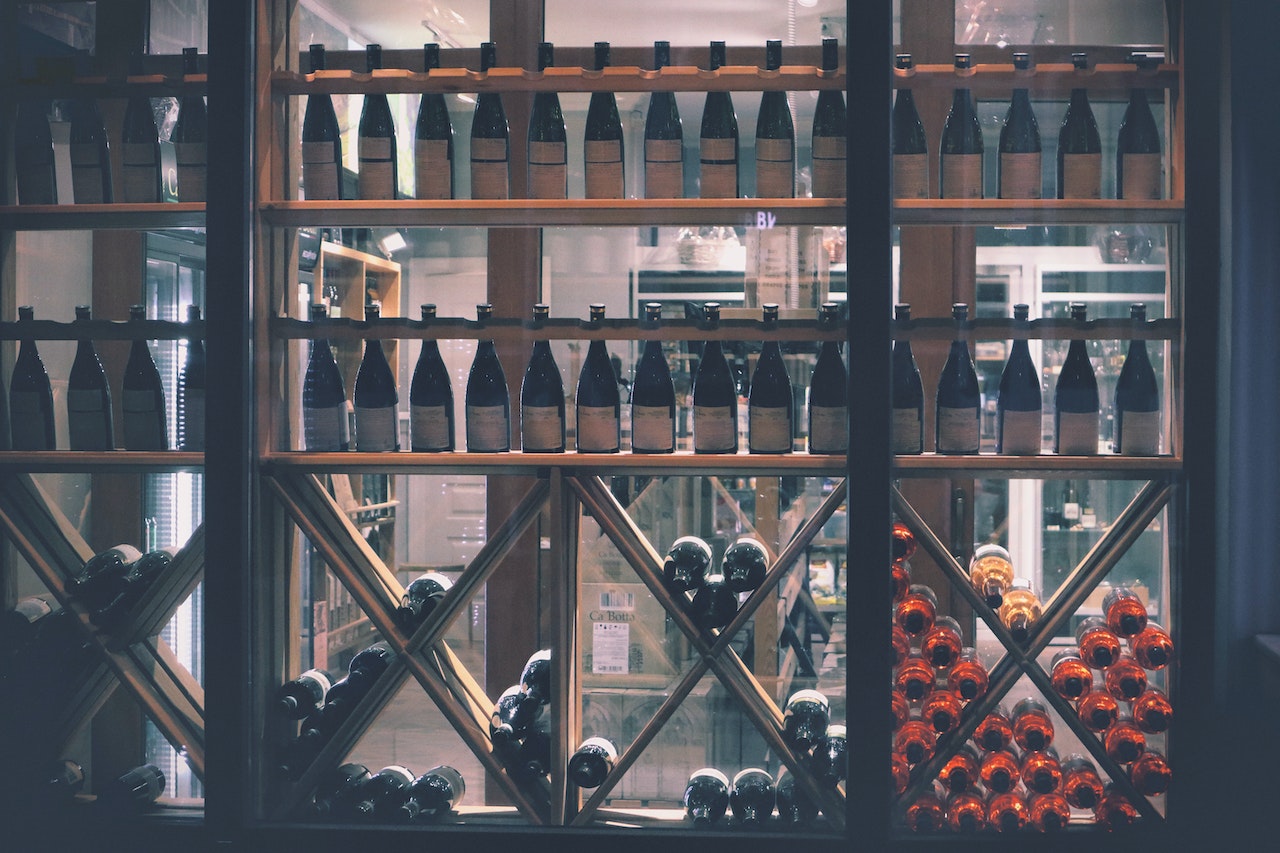
In the past few decades, the Philippines has experienced rapid changes in its liquor market, brought about by the digital revolution. This article explores the evolution of the digital liquor landscape in the country, the rise of online liquor sales, and the role of e-commerce in transforming the liquor industry.
Understanding the Philippines’ Liquor Market
The liquor market in the Philippines is as diverse as it is dynamic. The country’s rich cultural heritage has influenced the production and consumption of a variety of alcoholic beverages, with local spirits and international brands having their own distinct share in the market.
In recent years, however, the landscape has begun to change. What used to be a market dominated by traditional retail stores and establishments, is now rapidly transforming into a digital arena.
As the Philippines embraces the digital age, the liquor market is experiencing a significant shift in consumer behavior and industry dynamics. This transformation is not only driven by technological advancements but also by changing consumer preferences and the need for convenience.
– Traditional Liquor Retail in the Philippines
The traditional liquor retail in the Philippines primarily consisted of local stores or “sari-sari stores”, large-scale supermarkets, and specialty liquor shops. These establishments offer a wide selection of local and imported liquor brands, catering to a diverse customer base with varying preferences and budgets.
These traditional retailers have long been the go-to places for Filipinos to purchase their favorite alcoholic beverages. From small neighborhood sari-sari stores that provide convenience to the bustling supermarkets that offer an extensive range of choices, these brick-and-mortar establishments have played a crucial role in shaping the liquor market landscape.
However, as the digital age progresses, these traditional retailers are facing a drastic need to adapt to the evolving market trends and demands. The convenience and accessibility offered by online platforms have started to lure customers away from physical stores, challenging the traditional retail model.
Despite this challenge, many traditional retailers are now recognizing the importance of embracing digital transformation. Some have started to establish their online presence, offering customers the option to order and have their favorite liquor delivered to their doorstep.
While the traditional liquor retail sector may face some hurdles in this changing landscape, its long-standing presence and established customer base provide a solid foundation to navigate the digital era.
– Key Players in the Philippines’ Liquor Industry
Among the key players in the Philippines’ liquor industry are renowned local and international brands like San Miguel Brewery, Tanduay Distillers, Pernod Ricard, and Diageo. These companies have a strong presence in the market and continue to influence buying trends and drinking cultures in the country.
San Miguel Brewery, a household name in the Philippines, has been producing and distributing a wide range of alcoholic beverages for decades. From their iconic San Miguel Pale Pilsen to their flavored beers, the brand has become synonymous with quality and taste.
Tanduay Distillers, on the other hand, is known for its world-class rum. With a history dating back to the 19th century, Tanduay has mastered the art of rum production, offering a diverse range of flavors and variants that cater to different consumer preferences.
International brands like Pernod Ricard and Diageo have also made their mark in the Philippine liquor market. Pernod Ricard, a global leader in the spirits industry, has successfully introduced popular brands such as Absolut Vodka and Chivas Regal to the Filipino consumers. Diageo, another major player, is recognized for its iconic labels like Johnnie Walker and Smirnoff.
However, the rise of online platforms has led to a surge in competition and a need for these brands to adapt to the digital sales landscape. With e-commerce platforms gaining popularity among consumers, these key players are now exploring new avenues to reach their target market, including online promotions, partnerships with delivery services, and creating engaging digital content to enhance customer experience.
The liquor market in the Philippines is indeed a dynamic and ever-evolving industry. As traditional retailers strive to adapt to the digital era and key players navigate the online landscape, the future of the liquor market holds exciting possibilities for both businesses and consumers alike.
The Rise of Digital Liquor Sales
The Philippines, with its rapid digital transformation, has witnessed a significant shift in consumer behavior, especially in the realm of liquor sales. Gone are the days when purchasing a bottle of wine or spirits required a trip to the local store. The rise of e-commerce platforms and digital payment systems has made it convenient for consumers to buy wine online in the Philippines. Case in point: the growing market of Thirst: Philippine’s First Online Liquor Marketplace. This burgeoning digital trend has not only expanded the accessibility and variety available to consumers but has also presented an opportunity for local and international brands to tap into a wider market. It’s a win-win scenario, with consumers enjoying the luxury of choice and doorstep delivery, and sellers gaining access to a broader audience.
– Impact of the Internet on Liquor Retail
The internet has a significant impact on the liquor retail industry. It has eliminated geographical limitations, allowing consumers to shop for liquor from any part of the country and even the world. Not only has this broadened the market reach of liquor retailers, but it has also granted more diverse choices for consumers.
Moreover, the internet has reshaped marketing and customer engagement strategies. With e-commerce platforms and social media, businesses have wider opportunities to reach their target customers and influence their buying decisions.
– Emergence of Online Liquor Stores
As the Philippines’ liquor market moved towards digitalization, several online liquor stores emerged. These stores offer an extensive selection of drinks and spirits, ranging from local favorites to international brands.
These online platforms also provide a seamless shopping experience for consumers, complete with user-friendly interfaces, secure payment options, and prompt delivery services. This convenience contributes to their growing popularity among Filipinos.
The Role of E-commerce in the Liquor Industry
E-commerce has played a pivotal role in transforming the liquor industry. Online platforms have provided retailers with an effective medium to reach their customers in a more efficient and timely manner.
This digital shift has not only increased sales but also allowed for better customer engagement, improved feedback mechanisms, and the ability to address customer needs promptly and effectively.
– Benefits of Online Liquor Shopping
Online liquor shopping offers numerous benefits. It provides accessibility, convenience, and a wide array of choices that aren’t usually available in traditional liquor stores.
Moreover, online platforms often offer deals and discounts that are deemed more appealing to consumers. Customer reviews and ratings also add a layer of transparency, helping others make informed purchasing decisions.
– Challenges in Online Liquor Sales
Though online liquor sales offer numerous benefits, it also presents a set of challenges. The primary concern is ensuring age verification to prevent underage drinking. Ensuring prompt and secure delivery of the liquor is also a crucial challenge faced by online liquor retailers.
Additionally, regulatory considerations, online payment security, and maintaining consumer trust are other salient issues that need to be addressed to sustain online liquor sales.
The Future of the Philippines’ Digital Liquor Landscape
The future of the Philippines’ digital liquor landscape holds immense potential. With increasing internet penetration and a growing acceptance of online shopping, it’s reasonable to anticipate continued growth in online liquor sales.
– Predicted Trends in Online Liquor Sales
Consumer preferences are continuously evolving, and their shopping habits are becoming more digital. This trend is expected to continue, leading to growth in online liquor sales. Additionally, consumers are likely to demand a wider selection of products, faster delivery times, and more personalized shopping experiences.
Businesses will need to adapt to these changes and leverage technology to offer enhanced customer experiences.
– Potential Challenges and Opportunities
While there are numerous opportunities present in the growing digital liquor market, there are also challenges that businesses need to overcome. These include ensuring regulatory compliance, securing transactions, and building consumer trust.
By addressing these challenges and leveraging the power of e-commerce, businesses in the Philippines’ digital liquor landscape can look forward to a promising future.
Related Articles:
– Shopping Smart: Why an Expert Appraisal Matters When Buying Vintage Jewelry
– 25 Best Travel Blogs in 2023: Top Travel Blogger Websites in the World

